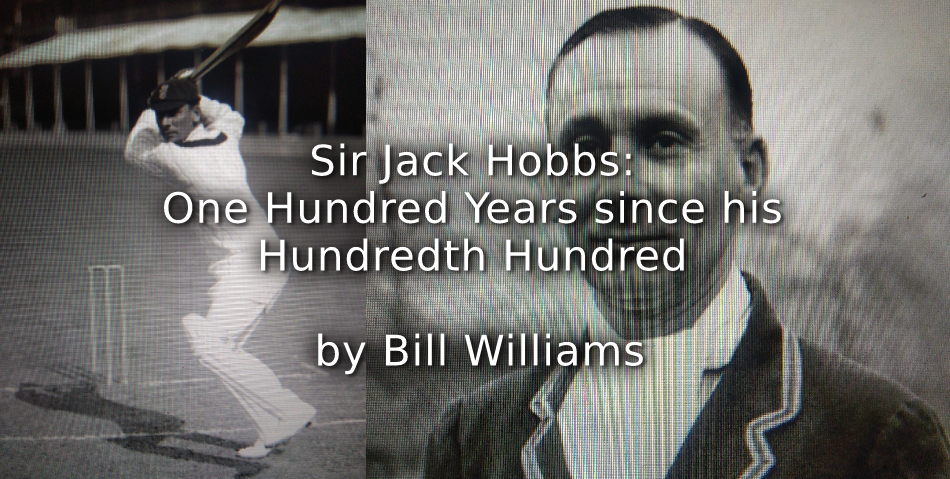The final day of the County Championship match between Somerset and Surrey on May 9th 1923 provided Jack Hobbs with his 100th century in first –class cricket.
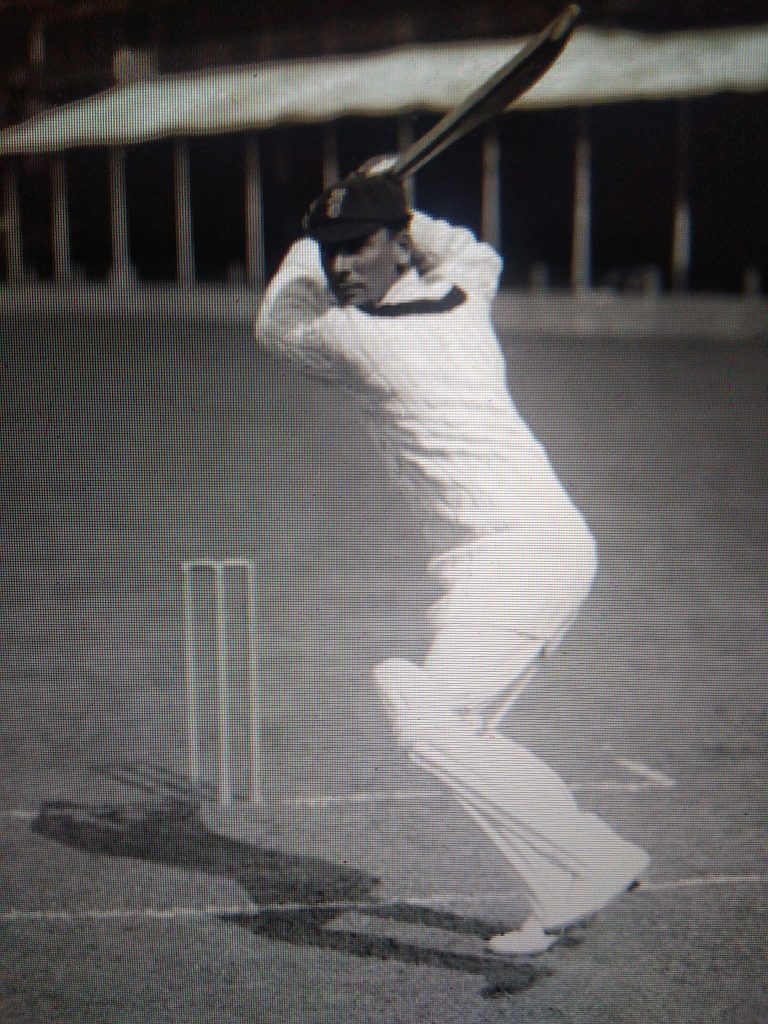
Hobbs in full flight
Author’s Collection
The Times reported that
Hobbs’s great achievement makes it worthy of mention that it was in May 1905 that he first appeared for Surrey and in his first County Championship match scored 28 and 155 against Essex.
With the total at 216 for five wickets and Hobbs not out for 116, the innings was declared; Hobbs’s innings had lasted three and a half hours and included three 6’s and eleven 4’s.
Hobbs had become only the third batsman in history to accomplish this feat, with the venerable Dr W.G.Grace, reaching this milestone first in 1895 playing for Gloucestershire, also against Somerset; he would go on to reach 126 centuries during his long career.
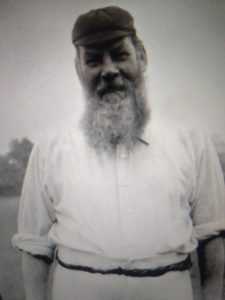
WG- the first to reach the milestone
Author’s Collection
Tom Hayward of Surrey and England would come next in 1913 and reached 104 by the time he had retired in 1914.
It would only take Hobbs two more years to beat W.G’s record amassing over 3,000 runs in 1925, scoring 16 centuries at an average of 70.32.
John Berry ‘Jack’ Hobbs would build on that day in 1923 and smash his way to 199 first class centuries in a career that spanned four decades, scoring a staggering 61,760 runs at an average of 50.70 in 834 first class matches, which included 61 tests for England between 1908 and 1930. In his career he scored 15 Test centuries with a highest score of 211 against South Africa in the second Test in 1924.
Hobbs known as ‘The Master,’ scored half of his centuries over the age of 40 and remains at 46, the oldest man to score a Test century; 132 v Australia in Melbourne in 1929.
He is one of only two men to be named ‘Wisden Cricketer of the Year’ on two occasions( 1909 and 1926) alongside Pelham Warner and was named as one of their FIVE ‘Cricketer’s of the Century’ in 2000, selected by a panel of experts alongside Sir Donald Bradman, Sir Garfield Sobers, Shane Warne and Sir Vivian Richards and is the only Englishman on the list.
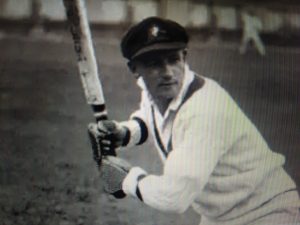
The Great Don Bradman
Author’s Collection
In 2009 Hobbs, was selected by Cricket historians and writers as a member of ‘England’s All – Time Best Team’ and after three days of voting in January 2023 The Daily Telegraph readers voted him in as one of England’s All-time Greatest Test XI .
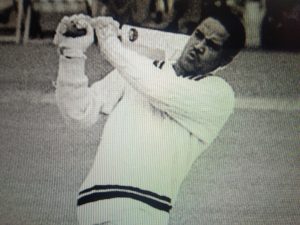
Sir Garfield Sobers
Author’s Collection
In relation to the most centuries ever scored in first-class cricket, Hobbs tops the list of the top twenty five cricketers who have currently scored one hundred hundredths, by a very comfortable margin (Patsy Hendren is in second with 170) and is never likely to be overtaken. He is also the only player to score over 60, 000 runs in the first class game.
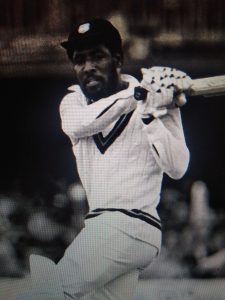
Sir Viv Richards
Author’s Collection
In 1930 a pavilion was built and named after him at Parkers Piece in Cambridge, where he had begun his career and in 1934 after he had retired, ‘The Jack Hobbs Gates’ opened and became one of the major ground entrances at ‘The Oval’ in London.

Shane Warne
Author’s Collection
In 1949, Hobbs was amongst the first professional cricketers to be made ‘life members’ of the MCC and in 1953 he became the first professional cricketer to be knighted.
He remains the most prolific batsman in the history of cricket and stands as a ‘colossus over the game!’
Sir Jack Hobbs died in 1963 at the age of 81 and the legendary cricketing commentator John Arlott had this to say:
He had all the gifts of the great batsmen. Others scored faster and hit the ball harder. No one else, though, ever battled with more consummate skill than his
Article © of Bill Williams
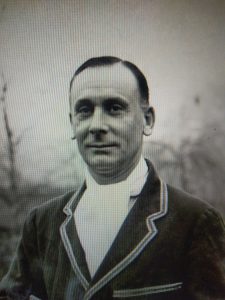
. Sir Jack Hobbs ( 1882-1963)
Author’s Collection

